Albert Brooks Gives Himself the Business
By JOE RHODES
Published: June 1, 2008
ALBERT BROOKS, who turns 61 in July, hasn’t had a recurring part on a television series since 1970, when he played a guy named Rudy in two episodes of
"The Odd Couple". He mostly made movies after that: his own movies, written and directed by Albert Brooks and starring Albert Brooks as a less aware, less competent, more easily flustered versions of Albert Brooks. "The Woody Allen of the West Coast", a critic once called him.
Unless you count the rare talk show appearances promoting his movies and a few pseudo-anonymous voice-overs on
"The Simpsons", he has stayed away from TV for most of the last thirty years. But the producers of the Showtime series
"Weeds", which returns for its fourth season on June 16th, lured him back.

 Albert Brooks, who will appear on four
Albert Brooks, who will appear on four
episodes of “Weeds,” usually acts in his
own movies.
He'll appear in the first four episodes as Lenny Botwin, father-in-law to Nancy, the pot-dealing suburban mom played by Mary-Louise Parker. He portrays an irresponsible, judgmental ne'er-do-well, the kind of part he would never play in an Albert Brooks movie. Which, he explained in an interview with Joe Rhodes at the Beverly Wilshire Hotel in Beverly Hills, is why he's doing it. Excerpts from their conversation follow.
Q. I think a lot of people are surprised to see you turn up in a television series. How did this come about?
A. They called. I like the show, and that was the most important thing. It was really good writing. And the part was something I never played before. The character was different and, even when I do independent films, I sort of look for something that I haven’t played before. But some of the independent movies I've made, they just disappear. I call them David Copperfield productions. And it's frustrating. So I figured, this, at least it’s on eight times a week for a month.
Q. Have you been looking for this kind of work? Not television necessarily, but chances to play other kinds of characters?
A. I love to act, so, yeah. Over the years, because I sort of lived my life making my own movies, and that's what I immersed myself in, I think I turned down so many things that I’m just not put up on the board anymore, you know? I read a review of
Iron Man that said, "Jeff Bridges doing his best Albert Brooks", and I haven't seen the movie, so I don't even know what that means, but I thought, "Hey"....
Q. That you could have done the part?
A. Well, sure. I could have done my best Jeff Bridges. I see the billboards for that HBO movie
"Recount", and it's filled with the kind of people that I can play in my sleep. I think to myself, 'I should have been first on that list.' So doing something like
"Weeds", having that out there, is better than me telling people I'm available. Because people sort of have to be shown. It's not that I don’t get offered things. I got offered a number of network guest spots on television that I didn't feel comfortable with, because I wasn't quite ready to be interrupted by a Ford commercial. I don't know, it felt like too much of a jump.
Q. Is acting where you want to put your energy now? Are you still working on your own projects or would you rather be a hired hand for a while?
A. I definitely have films that I want to do myself. I'm writing right now. I'm on Page 54 — 55 actually — and if I finish this and I raise the money, then I go do it. I can't not do that. But I'd like an excuse to delay that by having one or two great feature film parts. Because if I take myself out of the game for another two or three years, then I'm probably out of it for good. So I would like very much if when I got home today there was an interesting script waiting for me as an actor. I always thought I'd make a very interesting bad guy.
Q. What’s the movie you're writing?
A. I'll try to answer that question without putting real ideas in
The New York Times. I certainly am interested in what a real future might look like, you know? Let's just put it this way; all the warnings we're hearing from political candidates, what if some of them actually came true? That, to me, makes an interesting story.
Q. So, now that you're in your 60s ...
A. Sixty. Just 60. I don’t get the "s" yet.
Q. Now that you're 60, do you find your perspective dramatically changed from when you were in your 30s or 40s? Are you less aggravated than you used to be? Less frustrated?
A. I think I get more aggravated. At some things. I haven't become Mary Poppins because I have a wonderful wife and two great kids. What I distrust and worry about, that changes. But my nature doesn't change. Sometimes when I'm down, my wife will say to me: "Look what you have. You have a great family and everything". And it's absolutely true.
Q. So does that mean your ability to roll with the ups and downs of the business has improved?
A. I don't think so. No. You know, I was reading something the other day, an interview with Woody Allen, and I've always been amazed that Woody Allen claims he doesn't care about the business, doesn't know about the business his movies do and doesn't read anything about it. If that's true, that's really amazing. He never tested his movies. He never did any of that. That's a great luxury, you know. I was never able to hide from people letting me know about the business. And for me to have to go out and partake in the same game that
Made of Honor has to play in, is tough for me. 'Cause there’s no way I'm going to do well in that group of audiences. It’s like taking the SATs in Spanish for me.
But I don’t want to come off as person who spends my days thinking about the perilous aspects of the business. ... It's not what occupies my day. I'm still most concerned about coming up with the next great idea.
http://www.nytimes.com/2008/06/01/arts/television/01rhodes.html?_r=1&ref=todayspaper&oref=slogin
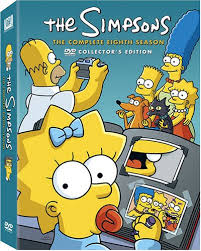

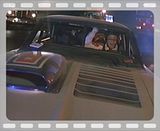
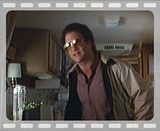

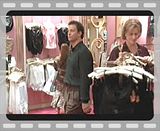
 Now, although it has been several years since I last watched Broadcast News, I do remember hating certain choices that Holly Hunter's character made. What was she thinking!?! That's all I will say.
Now, although it has been several years since I last watched Broadcast News, I do remember hating certain choices that Holly Hunter's character made. What was she thinking!?! That's all I will say.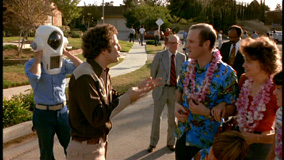 That guy looks like a complete idiot.
That guy looks like a complete idiot.





